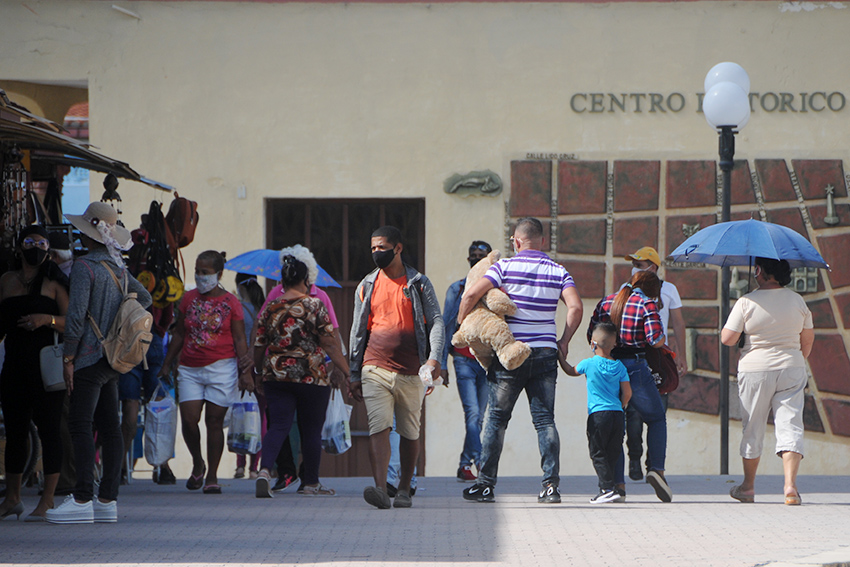
The isolation of contacts of the confirmed cases of new coronavirus and the surveillance of those suspected of being infected is a priority in this province's fight against COVID-19. At the same time, other steps to encourage the production and marketing of agricultural products are evaluated here.
Las Tunas, Cuba.- On Sunday, six new positives were diagnosed in the territory, with which 631 cases have already accumulated here since the first appeared in March 2020; of them, 470 are autochthonous. The Health authorities reported that 23 transmission sources are active, 18 in the provincial capital, although there is none in work centers.
In its daily analysis in this regard, the Temporary Government Group for the prevention and control of the COVID-19 here indicated to strengthen compliance with the protocols for the immediate isolation of the contacts of confirmed cases, from the establishment of the respective centers for preventive admission of those people.
However, Las Tunas still lacks the necessary infrastructure to also isolate the contacts of suspected cases, so the governing body aimed to strengthen their epidemiological surveillance. Another issue that deserves greater attention, insisted the management structure, is the attention to health workers who, after working in the red zone, go to rest buildings.
Likewise, the Group warned about excessive flexibility in granting authorization letters for business trips outside the capital city. Consequently, precise indications were given so that first, there is a single model that gives an order to the current processes; and second, the municipal administration councils are more rigorous in determining the beneficiaries with this premise, essential since last March 29 the municipality of Las Tunas regressed to phase three of the post-COVID-19 recovery stage.
While the construction work of the Molecular Biology Laboratory for the Balcón del Oriente Cubano (Balcony of Eastern Cuba) continues, during the meeting it was also learned that changes in the commercialization policy of agricultural products will be approved in the coming days, as a result of the exchanges between cooperatives and producers with representatives of the Ministry of Agriculture, the Commission for the implementation of the Guidelines approved by the 6th Congress of the Communist Party and the National Association of Small Farmers (ANAP).
Last February, the Minister of Finance and Prices, Meisi Bolaños Weiss, reiterated that the collection companies or the agricultural companies and local governments have the power to agree on prices with the production forms, generally respecting the principles approved by the Council of Ministers.




